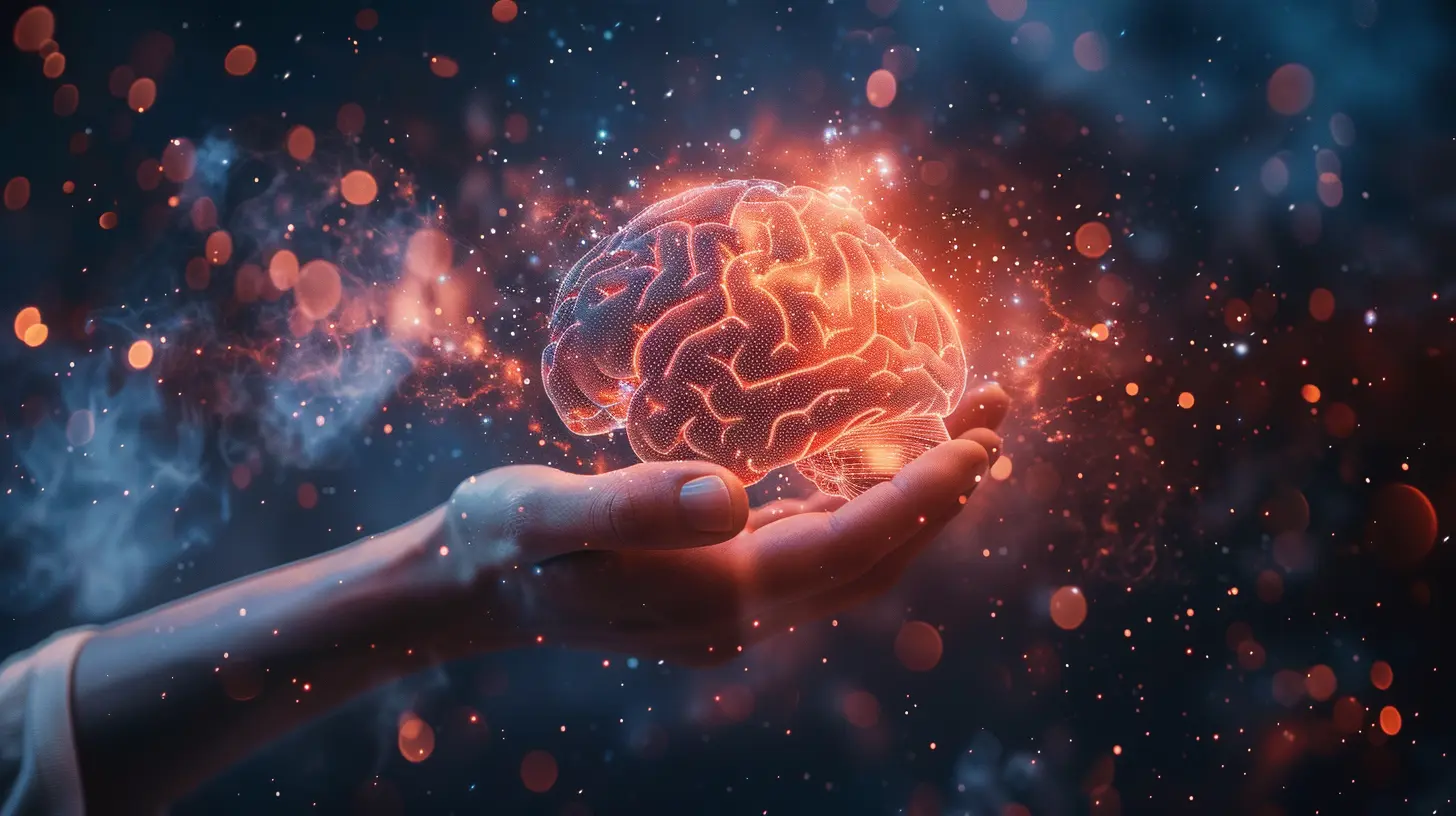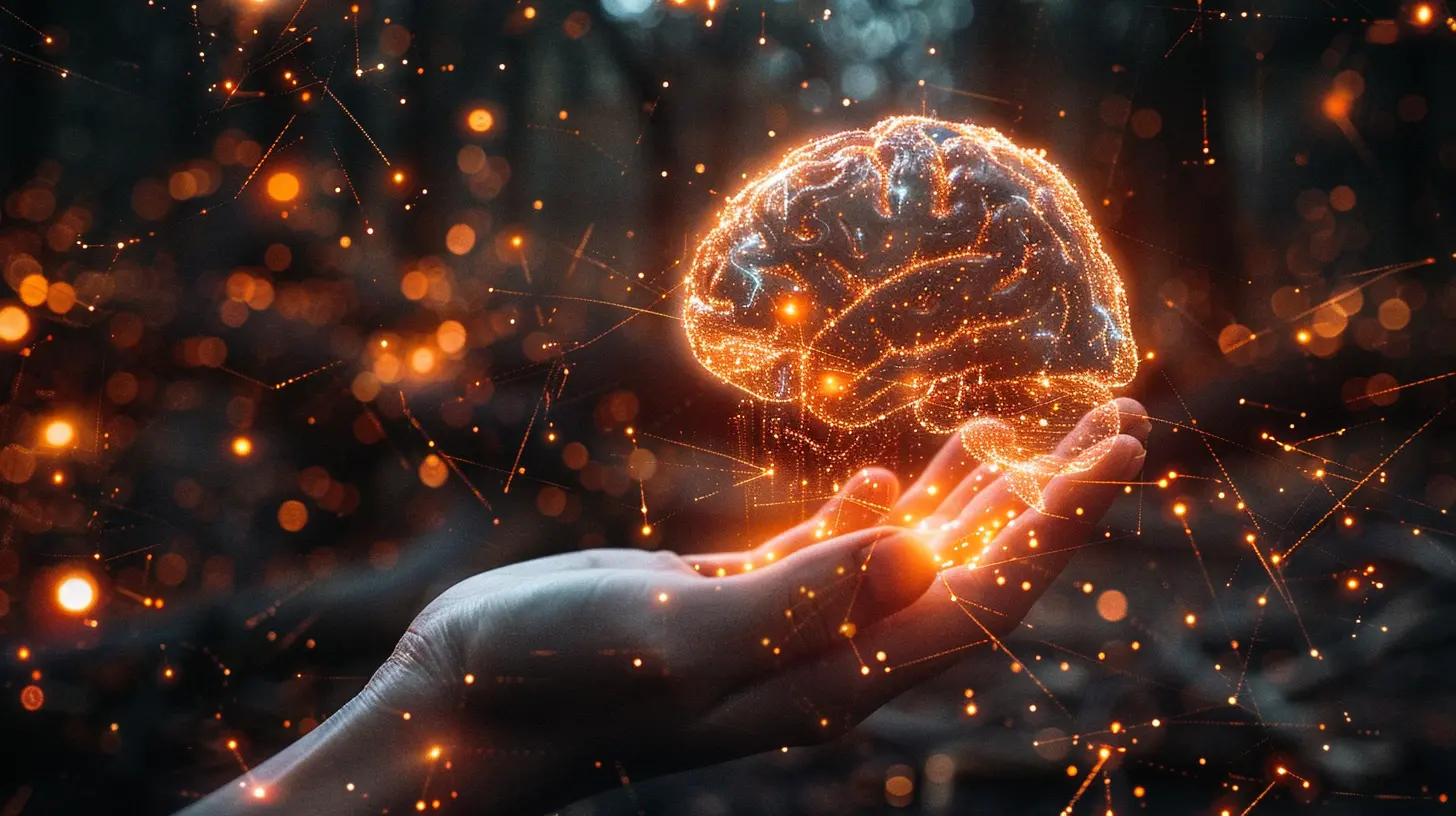Trusting Your Gut: The Neuroscience of Intuition
10 October 2025
Have you ever had a gut feeling about something? Maybe you met someone for the first time and immediately felt like they weren't trustworthy, or you suddenly knew the right decision to make without having all the facts. It’s that inner voice, that instinct, that just knows. We often call it intuition. But what is intuition exactly? Is it some magical sixth sense? Or is there actual science behind it?
Let's dig into the fascinating world of intuition, and more specifically, the neuroscience behind it. Spoiler alert: there’s more going on in your brain than you might think!

What Is Intuition?
Intuition can be tricky to define because it’s more of a feeling than something you can put into words. In simple terms, intuition is the ability to understand or know something without the need for conscious reasoning. It’s like an invisible guide that helps you make decisions, often without you even realizing it.We’ve all heard phrases like “trust your gut” or “follow your instincts.” These sayings stem from the idea that our brains are capable of processing information and making decisions subconsciously. But how does this work? Why do we sometimes just know something without being able to explain why?
To understand intuition, we need to take a trip inside the brain.

The Neuroscience Behind Intuition
The brain is a complex organ, constantly processing vast amounts of information. Most of the time, this processing happens without us even being aware of it. Intuition, in particular, arises when the brain draws on past experiences and patterns to make quick judgments or decisions without requiring conscious thought.The Role of the Basal Ganglia
Let’s start with the basal ganglia, a group of structures deep in the brain. This part of the brain is essential for habit formation and pattern recognition. When you encounter a situation that’s similar to one you’ve experienced before, the basal ganglia kicks in, helping you to quickly react based on what you’ve learned in the past.For example, let’s say you’re walking alone at night, and you suddenly feel uneasy. Your brain may be picking up on subtle cues—maybe the street is unusually quiet, or there’s a shadowy figure lingering nearby. Without you even realizing it, the basal ganglia has scanned your memories for anything similar and is signaling that something might be off. That’s intuition in action!
The Prefrontal Cortex: The Decision-Making Hub
Next up is the prefrontal cortex, the part of the brain responsible for decision-making, planning, and social behavior. While the basal ganglia works in the background, the prefrontal cortex is where the conscious part of decision-making happens. But here’s the interesting part: when it comes to intuition, the prefrontal cortex often takes a backseat.When you make decisions based on intuition, your brain bypasses the long, drawn-out logical reasoning process and instead jumps to conclusions based on past experiences. This is why you might have a gut feeling about something without being able to explain it in words. Your brain has already done the heavy lifting behind the scenes.
The Amygdala: The Emotional Brain
We can't talk about intuition without mentioning the amygdala, the brain’s emotional control center. The amygdala is responsible for processing emotions, and it plays a significant role in the gut reactions we experience. When you feel an immediate sense of danger or unease, that’s the amygdala kicking into high gear.Interestingly, intuition is often linked to emotions. Think about it: when you have a gut feeling, it’s usually accompanied by an emotional response—whether it’s excitement, fear, or uncertainty. The amygdala helps us tap into these emotional cues, guiding our intuitive decisions.

Gut-Brain Connection: Is Your Gut Really Involved?
Okay, so we’ve covered the brain, but what about the gut? Is there any truth to the saying “trust your gut”?Actually, yes. Your gut and brain are more connected than you might think, thanks to something called the gut-brain axis. This axis refers to the two-way communication between your central nervous system (which includes your brain) and your enteric nervous system (which governs your digestive tract).
Ever had butterflies in your stomach before a big presentation or felt nauseous when you were nervous? That’s your gut and brain talking to each other. In fact, your digestive system is often referred to as your “second brain” because it contains a vast network of neurons—over 100 million, to be exact! These neurons can process information and send signals to your brain, influencing your mood and decision-making.
So, when you get that gut feeling, it’s not just a metaphor. Your gut is literally sending signals to your brain, and this communication can have a real impact on your intuitive responses.

Can You Strengthen Your Intuition?
Now that we know how intuition works in the brain, you’re probably wondering: can you actually improve your intuition? The answer is yes! Like any skill, intuition can be honed and refined over time. Here are a few ways to sharpen your gut instincts:1. Pay Attention to Your Emotions
Emotions are closely tied to intuition. By being more aware of how you feel in certain situations, you can start to recognize patterns in your emotional responses. The next time you have a strong emotional reaction (whether positive or negative), take note of it. Ask yourself: why do I feel this way? What is my intuition trying to tell me?2. Reflect on Past Experiences
Intuition is often based on past experiences. The more you reflect on your previous decisions and outcomes, the more you can learn from them. Think back to times when you trusted your gut—were you right? What did you learn from that experience? By analyzing these moments, you can build a stronger foundation for future intuitive decisions.3. Practice Mindfulness
Mindfulness is all about being present in the moment and paying attention to your thoughts and feelings without judgment. By practicing mindfulness, you can become more attuned to your inner voice and develop a deeper connection with your intuition. Meditation, deep breathing exercises, and journaling are all great ways to practice mindfulness.4. Step Outside Your Comfort Zone
Intuition thrives on new experiences. The more you expose yourself to different situations, people, and challenges, the more you give your brain a chance to build up its library of experiences. This will ultimately help you make quicker, more informed decisions based on intuition.5. Trust Yourself
This might sound obvious, but one of the best ways to strengthen your intuition is to simply trust it. The more you rely on your gut feelings, the more you’ll learn to recognize when they’re guiding you in the right direction. It’s like building a muscle—the more you use it, the stronger it gets.When Should You Trust Your Gut?
While intuition can be a powerful tool, it’s not always foolproof. So, how do you know when to trust your gut and when to rely on logic and reasoning?Trust Your Gut When:
- You have experience in the situation. Intuition is often based on patterns, so it’s more reliable when you’ve encountered something similar before.- You don’t have time for lengthy decision-making. In fast-paced situations (like avoiding an accident), your gut can help you make quick, effective decisions.
- The stakes are low. If the outcome isn’t life-altering, it’s okay to rely on your intuition.
Use Logic and Reasoning When:
- You don’t have enough experience. If you’re in unfamiliar territory, your intuition might not be as reliable.- The decision involves high stakes. For major life decisions (like buying a house or changing careers), it’s essential to weigh all the facts and data before making a choice.
- You’re feeling overly emotional. Emotions can cloud your intuition, so if you’re feeling particularly stressed or anxious, it’s a good idea to take a step back and think things through logically.
Conclusion: The Power of Intuition
At the end of the day, intuition is a remarkable tool that allows us to make decisions quickly and efficiently, drawing on past experiences and emotional cues. While it’s not perfect, understanding the neuroscience behind intuition can help you appreciate its value and know when to trust it.So next time you get that gut feeling, remember: your brain and body are working together in ways you can’t even see, helping you navigate the world one instinct at a time.
all images in this post were generated using AI tools
Category:
Decision MakingAuthor:

Matilda Whitley
Discussion
rate this article
1 comments
Sawyer Hurst
This article brilliantly highlights how our gut feelings are rooted in neuroscience, emphasizing the importance of trusting our instincts in decision-making.
October 10, 2025 at 2:59 AM

Matilda Whitley
Thank you! I'm glad you found the article insightful. Trusting our instincts is indeed rooted in fascinating neuroscience.


